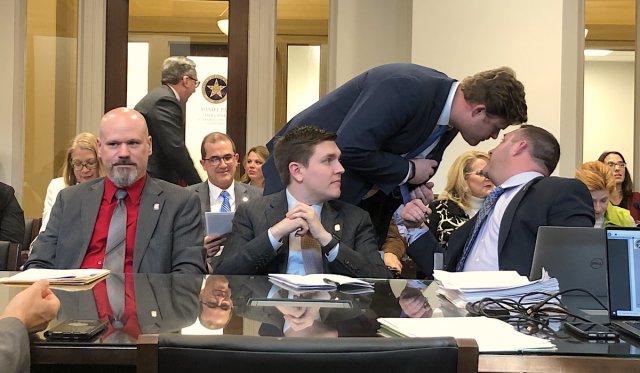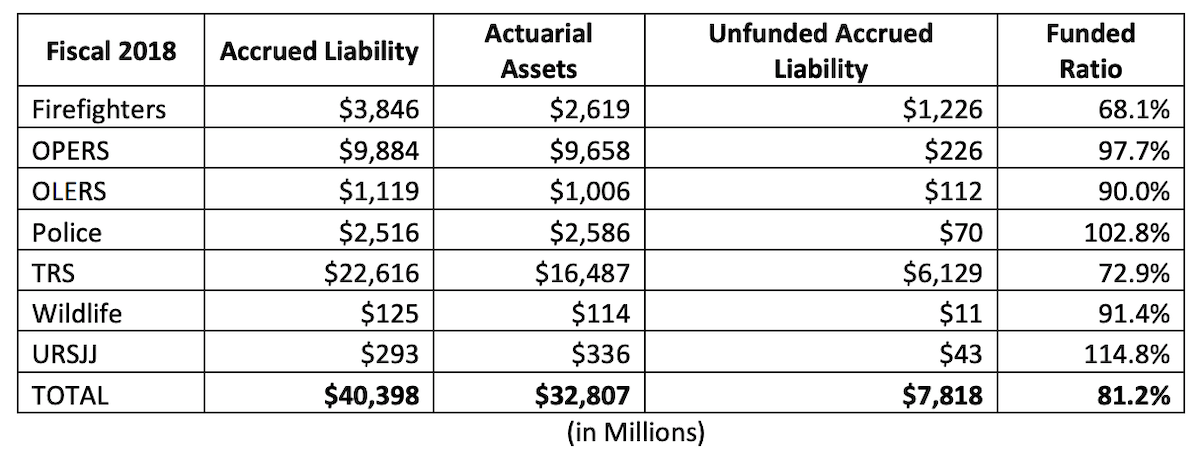

A compromise over how much to hike payments to retired public employees would provide different cost of living adjustments based upon how long individuals have been receiving benefits.
Called a COLA, a cost of living adjustment has not been approved for teacher, police, firefighter, judicial and other retired public employees in 12 years. The issue stalled during last year’s legislative session as the State Senate sought an actuarial study to analyze the financial effects of a 2 percent or 4 percent COLA on each employee group’s pension fund.
“This year we came back, and my understanding is that the House leadership has an agreement with the Senate leadership (…) to move this hopefully all the way to the governor’s desk,” said Rep. Avery Frix (R-Muskogee) when presenting HB 3350 this afternoon.
HB 3350 advanced out of the House Rules Committee by a 8-0 vote. The bill would approve a 4 percent increase in monthly pension payments for those retired for five years or more as of July 1, 2020, and a 2 percent increase for those retired at least two years but not five years. Anyone retired for less than two years as of July 1, 2020, would receive no increase in their monthly pension payments. It also would include increases for retired volunteer firefighters.
“At one time, our systems were some of the worst-funded pension systems in the nation,” Frix said. “They’ve come a long way, mainly because of the sacrifices that retirees have made, and also because of some tough decisions this body has made. Now it’s my opinion that these retirement systems can support this.”
Sabra Tucker, executive director of the Oklahoma Retired Educators Association and spokesperson for the Keep Oklahoma’s Promises advocacy group released a statement after Thursday’s vote.
“Oklahoma’s retired public employees have waited for a COLA for 12 years,” Tucker said. “Year after year, costs have gone up while our retirees have been left behind. [Our organization] is united behind HB 3350, which ensures retirees can live in retirement with dignity.”
Scott VanHorn, president of the Oklahoma City Firefighters Local 157, also issued a statement.
“OKC Firefighters greatly appreciate the House Rules Committee unanimously approving a COLA bill today. This bill would provide much needed assistance to our retirees while keeping our system’s funding ratio moving in a positive direction,” VanHorn said. “We look forward to the full vote on the House floor, and appreciate all of the support House members have shown toward our retired firefighters, police officers, teachers, and public employees.”
For the past two sessions, Mike Mazzei, secretary of budget for Gov. Kevin Stitt, has encouraged lawmakers to be conservative if they fund a COLA out of the state’s pension systems. In the governor’s proposed FY2021 executive budget, system funding rates were noted:

Advocates for the various retirement groups have argued that the funded ratios are high enough to withstand a 4 percent COLA, and it’s possible the compromise within HB 3350 could become a litmus test for determining the impact of future COLA proposals.
COLA compromise passes House unanimously
On March 10, the House of Representatives took up Frix’s bill and advanced it unanimously by a 99-0 vote. Now, the bill will head to the Senate, whose leader said March 9 that he supports it.
“I personally am supportive of the stair-stepped approach (…) to get a COLA for former state employees, police, fire, judges, teachers,” Senate President Pro Tempore Greg Treat (R-OKC) said. “But that is just a Greg Treat position. That is not a Senate position.”
(Editor’s note: The Oklahoma City Firefighters Local 157 is a sponsor of NonDoc’s Oklahoma public resources page. This story was updated at 3:55 p.m. Thursday, Feb. 27, to correct reference to the Keep Oklahoma’s Promises organization. It was updated again at 12:50 p.m. Tuesday, March 10, to reference the full House vote.)




















